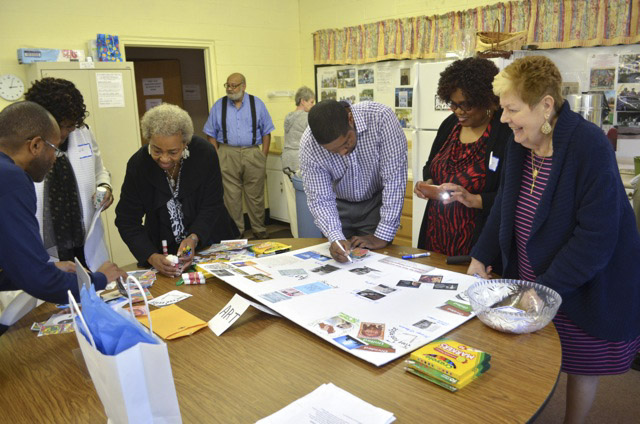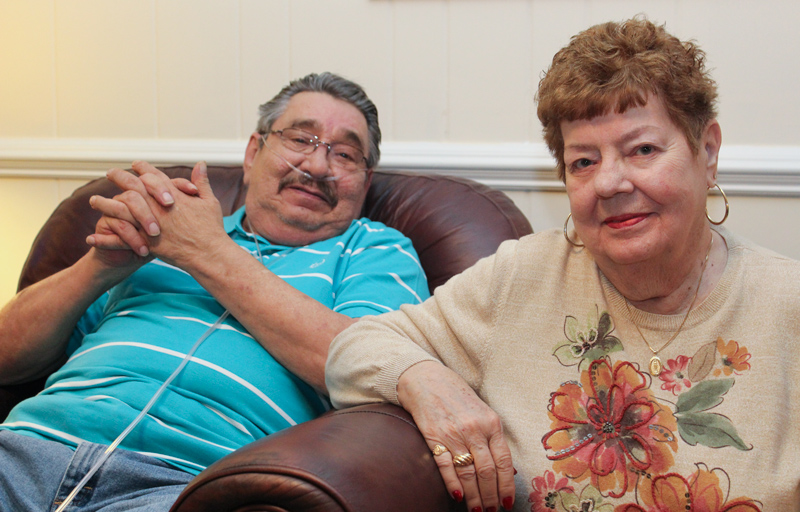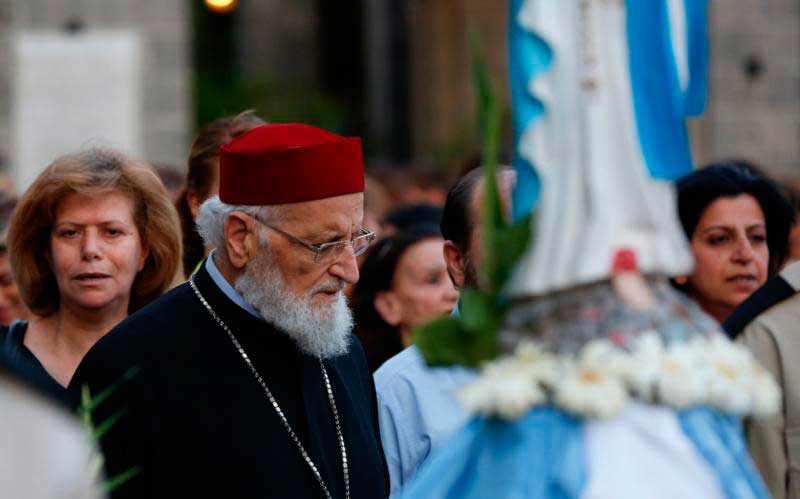
AIKEN—St. Gerard Catholic Church played host Saturday to several hours of discussion, prayer and presentations focusing on peace and race relations, with guest speakers including Aiken County Sheriff Mike Hunt and USC Aiken Academic Coordinator Tony Clyburn.
The gathering, under the title of “What We Have Seen and Heard: A Reflection on Peace,” addressed such topics as media bias, education, crime-watch organizations, body cameras (for law-enforcement officers) and diversity. Attendance numbered about 30.
 Clyburn, whose background includes service in education and law, shared his thoughts on gerrymandering, “the education divide” and corporal punishment, and also on memories from decades ago, when his childhood home was on the same block as St. Gerard. “I grew up next door,” he confirmed.
Clyburn, whose background includes service in education and law, shared his thoughts on gerrymandering, “the education divide” and corporal punishment, and also on memories from decades ago, when his childhood home was on the same block as St. Gerard. “I grew up next door,” he confirmed.
Hunt, in describing his attitude toward his job and responsibilities, suggested a theme of “we are you,” to remind his listeners that his deputies generally travel on the same streets, visit the same doctors and eat at the same restaurants as the general public.
A good principle to keep in mind and action, he said, is to “treat folks as you’d want to be treated.”
Much of the discussion was based on a letter written by a bishop from Illinois, the Most Rev. Edward K. Braxton, titled “The Racial Divide in the United States: A Reflection for the World Day of Peace 2015.”
Braxton’s text describes racism as “a sin that divides the human family, blots out the image of God among specific members of that family, and violates the fundamental human dignity of those called to be children of the same Father.”
Included is a call to prayer, church involvement, Bible study and various other types of community involvement. Part of the writer’s stated goal was listed as being to “assist you in thinking, talking, and praying about how Americans of different racial backgrounds relate to one another at this critical juncture.”
Helping lead Saturday’s proceedings was Kathleen Merritt, director of the Office of Ethnic Ministries for the Roman Catholic Diocese of Charleston, which includes all of South Carolina.

“The verbal feedback was really good, and there were some people that wanted to see this done again, so that others can come, and … a lot of churches are coming into communities and beginning that dialogue,” she said. “I live in Greenville, and we do it here quite often.”
Similar events, she said, have been held so far in Greenville, Charleston and Sumter, with probably 400-plus people having gone through the dialogue on race so far.
The sheriff, in responding to questions about recent high-profile, officer-related shootings, noted that much of the bloodshed and uproar could have been prevented if the parties being stopped or questioned by an officer had obeyed the lawful orders being given.
“Comply, and if you’ve been mistreated, I’ll look into it the next day,” Hunt said. Referring to his agency, he added, “We’re one, we work as one and we treat folks the same way.”
Merritt later commented, “The church can make a big difference in what we’re experiencing, as far as violence and hate against each other, so we’re just doing what we’re called to do.”
The ongoing need, she said, is for more dialogue, forgiveness, acceptance and reconciliation, in terms of working toward the end of racial division.
By Bill Bengtson | Aiken Standard
Reprinted with permission
Photos provided






